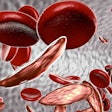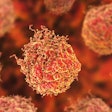Dear LabPulse Member,
Welcome to LabPulse.com, a new online portal for professionals in clinical laboratory medicine!
Our goal is to bring you the latest news and developments in clinical laboratory medicine, including pathology, microbiology, tumor typing, genomics, diagnostics -- and much more.
LabPulse is brought to you by the same team that operates Science Advisory Board, as well as AuntMinnie.com, the No. 1 website for diagnostic imaging professionals. With your LabPulse membership, you will also be gaining access to industry insights about new products from our in-house analysts such as Bruce Carlson, publisher of Kalorama Information, a sister company of LabPulse.
LabPulse features communities targeted to your own particular interests, including genomics, in vitro diagnostics, pathology, microbiology, and laboratory economics. Be sure to check out our list of communities.
We want to make LabPulse as interactive as possible, and we welcome suggestions for stories we can cover, as well as ideas for how to make LabPulse an indispensable part of your workday. As your editor in chief, I have more than 20 years of experience in covering medicine, including extensive coverage of biomarkers for use in personalized care. I would love to hear from you: Feel free to email me.
Now on to this week's news!
Molecular profiling helped identify genetic mutations that could be acted on in 54 out of 62 children and adolescents whose tissue was evaluated in the Personalized Targeted Therapy in Refractory or Relapsed Cancer in Childhood (TRICEPS) study, reported Fida Khater, PhD, and colleagues at the Centre Hospitalier Universitaire Sainte-Justine in Montreal.
Meanwhile, the U.S. Centers for Medicare and Medicaid Services (CMS) on April 29 announced that it would be reviewing its coverage policy for next-generation sequencing (NGS) for oncology tests to identify individuals who may have germline mutations.
Researchers used an electronic health record (EHR) system with clinical decision-support tools to educate clinicians and block questionable orders for gastrointestinal pathogen panels (GIPPs) for patients hospitalized with diarrhea. This approach cut the rate of inappropriate testing by 46%, with estimated savings of $168,000 over 15 months, a U.S. facility reported.
About 60% of newly diagnosed breast cancers in the U.S. are positive for hormone receptors and negative for human epidermal growth factor receptor 2, with no involvement of lymph nodes. Along with hormonal therapy, these women may get adjuvant chemotherapy to help prevent cancer recurrence. But the value of chemotherapy has been debated for women at lower risk. A recent study by researchers from the U.S. National Cancer Institute addresses whether genetic testing can help.
We promised insights from Kalorama's Bruce Carlson, and he delivers with a review of a wide range of products targeted at clinical laboratories that received regulatory approval in the first quarter of 2019. They range from new offerings for point-of-care testing to new biomarkers, assays, and companion diagnostics.
Finally, be sure to read our coverage of a comment period opened by the College of American Pathologists and the American Society of Clinical Oncology on a proposed revision of guidelines covering immunohistochemical testing for estrogen and progesterone receptors in breast cancer.
So welcome to LabPulse.com, and be sure to tell your colleagues about us!















